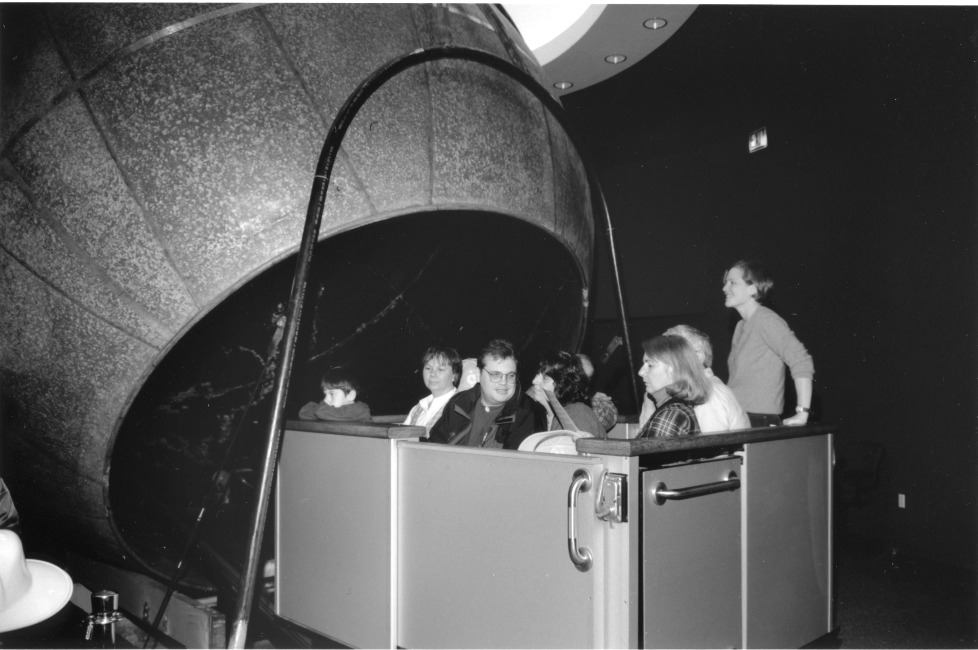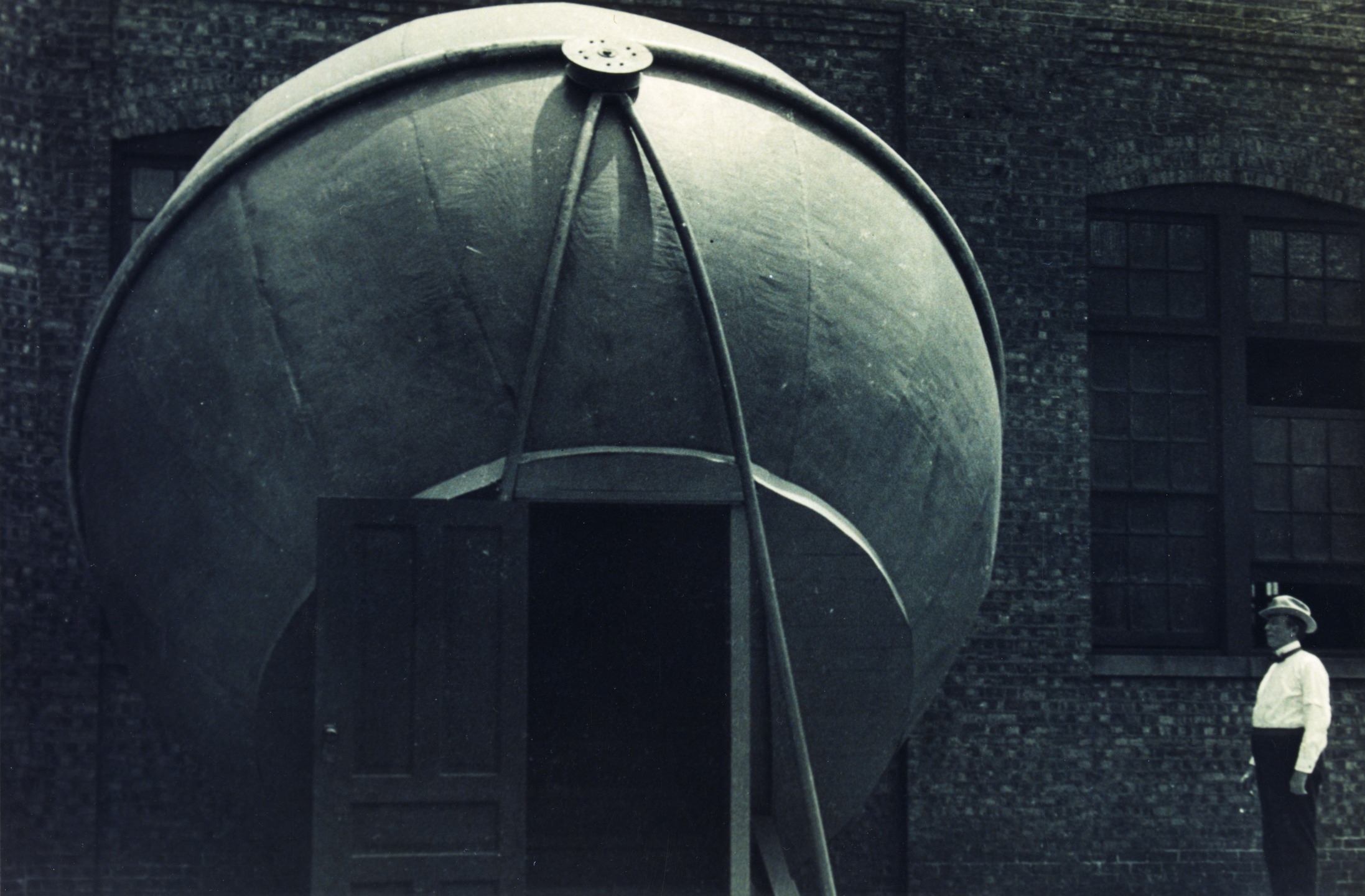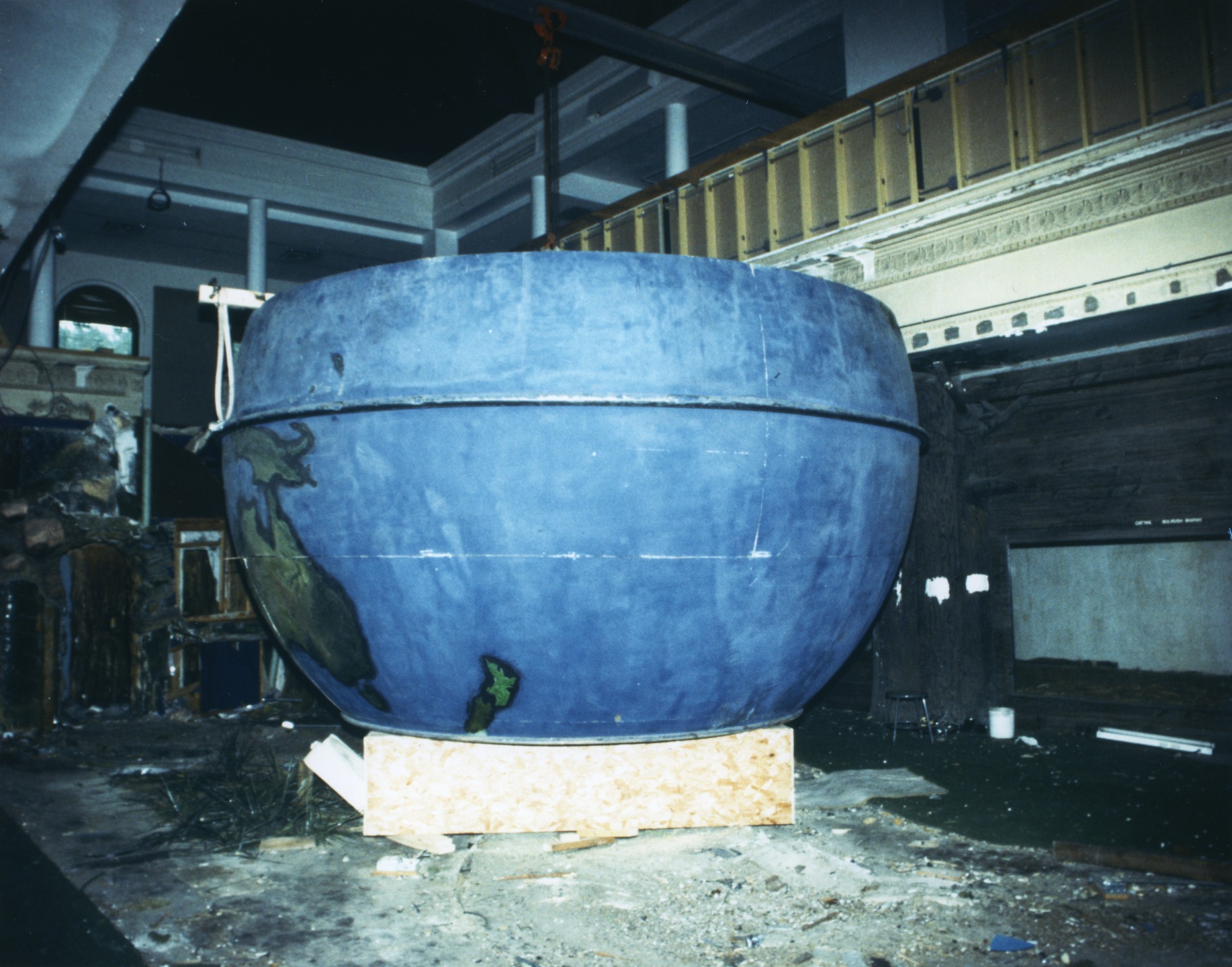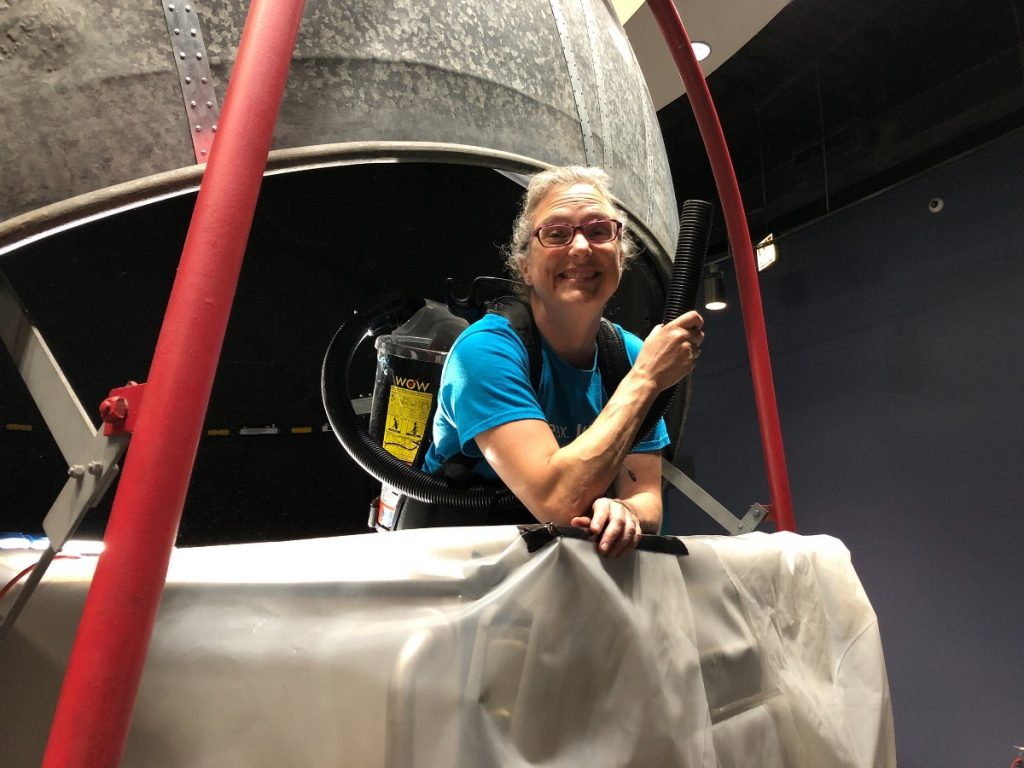A (Very) Brief History of the Atwood Sphere

Header Image: A full carload of visitors is pictured either going into or coming out of the Atwood Sphere at the Adler Planetarium. Credit: Adler Planetarium Archives
In November 2019, the Adler debuted a brand new 5,000 square foot exhibition called Chicago’s Night Sky.
This exciting new exhibition is a celebration of Chicago, a reflection on our relationship with the stars, and an exploration of how communities connect to the sky through myth, storytelling, art, science, and literature.
But we can’t talk about our night sky without talking about the historic Atwood Sphere. The Adler is lucky to call itself home to this incredible piece of Chicago history. It is the oldest sky simulator in the world still operating, debuting at the Chicago Academy of Sciences (CAS) in 1913.

Outside a brick building the Atwood Sphere stands assembled with an open wooden door at the bottom. A man is standing to the right. c. 1913 Image Credit: Adler Planetarium Archives
What Is The Atwood Sphere?
Originally called Atwood Celestial Sphere, the planetarium was designed by Dr. Wallace Atwood, an American geographer and geologist, specifically for CAS with the intent to help others learn about Chicago’s night sky. The commission of the exhibit cost $10,000, the largest dollar amount paid for any one single exhibit element at CAS to date.
The structure is comprised of a large, rotating sphere made of galvanized sheet-metal approximately five meters (~16 ft.) in diameter. 692 perforated holes in the metal sheeting of the dome simulate stars that are in principle visibility to the naked eye from Chicago. (Although only a few can normally be seen nowadays due to light pollution.). An attendant inside the dome operates an apparatus in order to rotate the sphere, showing how the stars seem to move altogether in the sky throughout the night as a result of the Earth’s rotation.
The Sphere spent a couple of decades at CAS, but interest gradually declined from 1930 onwards due to the opening of the more sophisticated Adler Planetarium, which featured the innovative Zeiss projector. During this time, during World War II, the Sphere was placed at the service of the U.S. Naval Reserve Unit stationed on Northwestern University’s Chicago campus for instruction in astronomical navigation.
In 1959, CAS would attempt to make alterations to the Sphere to make it more appealing to the public, including painting the outside to look like a terrestrial globe. These alterations would not be enough to increase public interest. Instead, the Sphere would remain dormant for several decades until it eventually would make its way to the Adler Planetarium in January 1997. As a result of this move, the Adler brought the Sphere back from the obsolescence it had originally contributed to. Since this time, guests have been able to experience Chicago’s two emblematic planetariums in the same place, during a single visit.

Atwood Sphere Refurbishment Process and Progress
The Atwood Sphere plays an important role in Chicago’s Night Sky. It give people the opportunity to relive a part of Chicago’s history and explore our night sky, all while serving as an anchor piece for activities in the surrounding gallery.
But after several years of everyday use here at the Adler, the Atwood Sphere was in need of a little TLC. Michelle Nichols, Adler’s Director of Public Observing, refurbished the interior of the Sphere. The extensive list of materials needed to complete the job included some unexpected items, including at least 700 toothpicks, UV paint, an LED blacklight, and scaffolding.

Take a behind-the-scenes ride into the recently refurbished Atwood Sphere with the Adler’s Collections Manager Chris! Then, when the Adler safely reopens again, come see the Sphere in-person.






